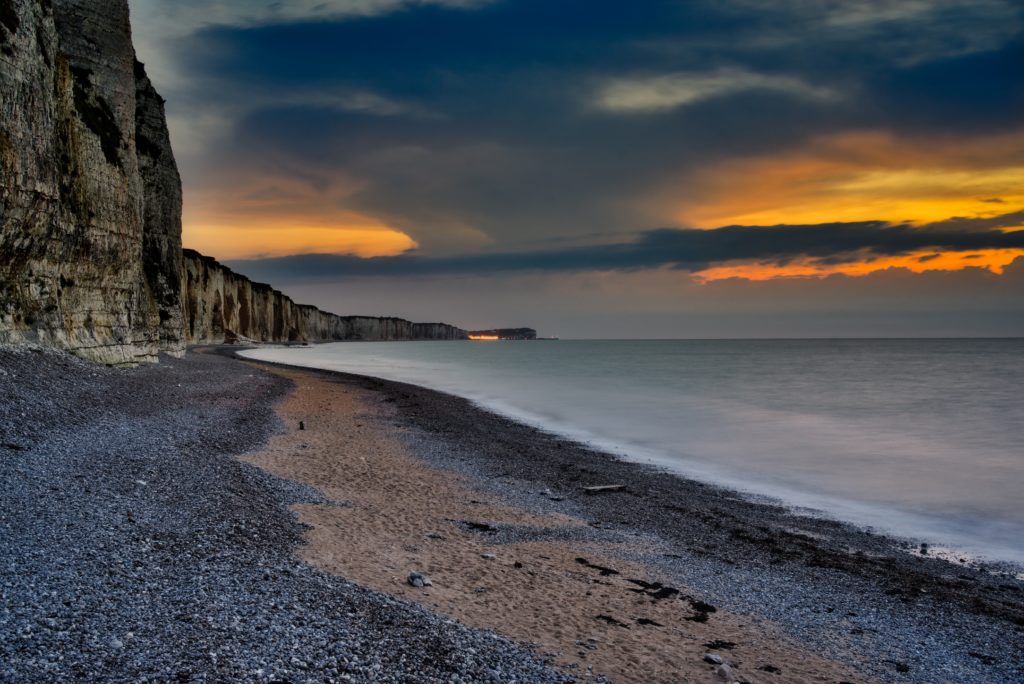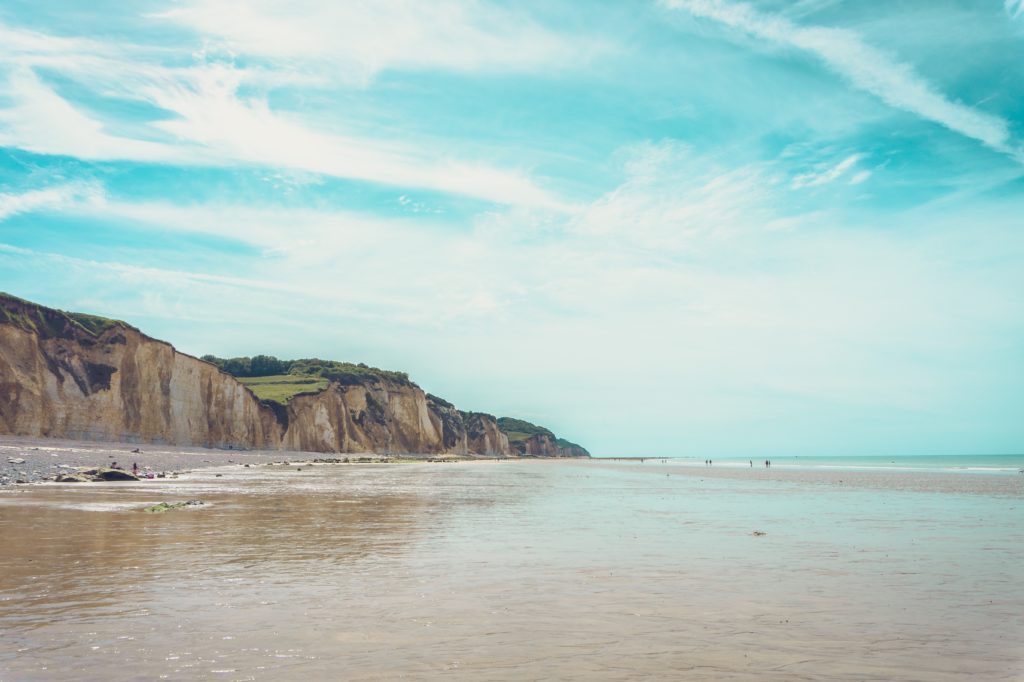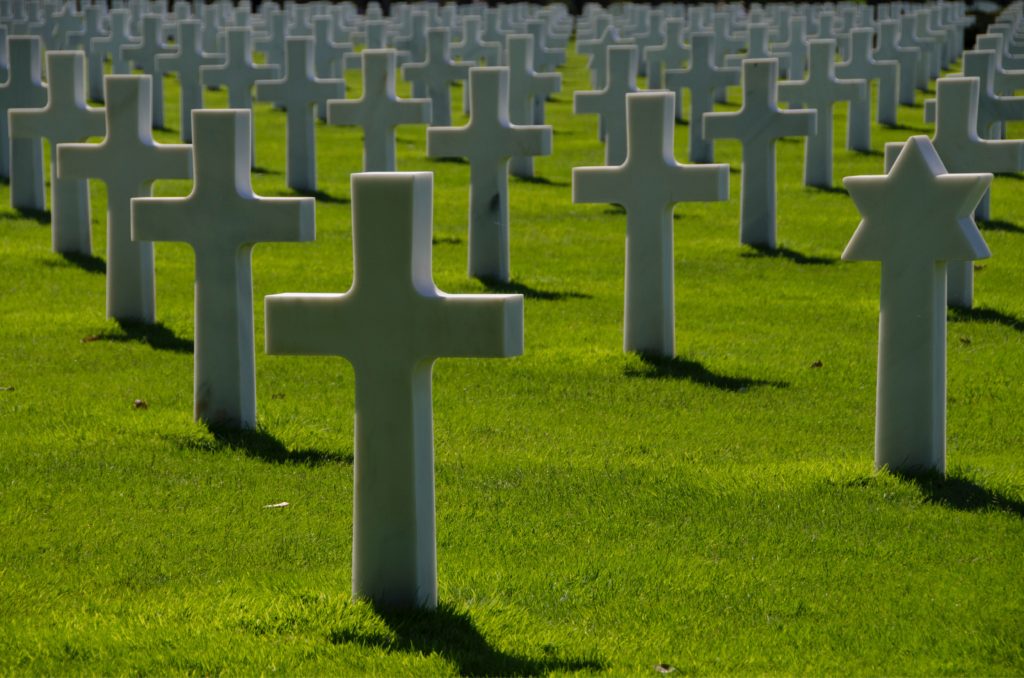
In the next couple of weeks thousands of people will descend on France’s northern shores. June 6th is the 75th anniversary of D-Day and the Battle of Normandy. This is the last commemoration where men and women who participated in what became known as the liberation of Europe will be present.
As we consider this epic military invasion we at Productive Learning are astounded by the will of allied troops to fulfill the mission of Operation Overlord led by General Dwight Eisenhower. Watching documentaries and footage from that day is riveting. One can’t help but wonder at the sheer fear of those young men.

Thousands upon thousands of troops jumped into the frigid waters completely vulnerable to enemy fire. It’s fascinating and remarkable how these troops had the courage to be vulnerable. They may have felt they had no choice but to fight. Nothing was certain. They knew many would die, they knew there would be pain, they knew they’d run right into the line of Nazi gunfire, yet with shaking hands and trembling mouths they forged on.
Most of us approach our feelings thinking we’re taking on an enemy from within—like we’re storming against a tyrannical regime governing our thoughts. We judge our feelings as “wrong” and “bad” because it hurts to feel them.
Why let ourselves feel pain when we can binge on Netflix, overeat, surf the Internet for hours? There are a million-and-one ways humans use resistance to avoid pain and remain stuck.
We are swashbucklers overwhelmed with emotions tethered to memory and stories, typically playing victim to them time and again. We fear being authentic and honest about our fears. It’s no wonder resistance shows up.
So what do we do with our resistance?
Let’s begin with acknowledging that our painful feelings aren’t the enemy nor is resistance. We must learn from the D-Day invasion…
Knowing the risks ahead, those leading troops first had to pause for hours upon hours and verify intelligence and tactics. Pausing is key to facing resistance and consequently, fear.
Thousands of troops spent hours of the night lulled by waves in their landing crafts (some terribly seasick) waiting in the harbor. A full moon rose with the serenity of low tide and a light sea breeze. The pause made some men anxious, some slept, some prayed but it allowed top brass to double-check their tactics.
For us, that means pausing to acknowledge what we’re feeling. Through deep breaths we can take stock of what feelings arise and what’s triggering them.
The other part is that like D-Day troops, we have to be vulnerable to fear.
Those troops had lots of emotional resistance. It took valor to be vulnerable and consumed by fear while moving ahead. There was little room for big egos. Just think of how many men were flanked with the wounded and dead; how many soiled themselves from fear, how many ran on adrenaline, cigarettes and tears as German bullets swooshed past them. They had to be vulnerable, even in the face of false bravado. Vulnerability can be empowering in some dangerous situations and more so in everyday life.
It takes courage to create space to be with fears that make us vulnerable. But, it’s an act of self-compassion too. When we stop resisting our vulnerability we liberate ourselves from our fears and resistance. Perhaps their vulnerability was unintentional but it still teaches us profound lessons.
We’re each on a mission of “Saving Private Myself”. It doesn’t matter where you are in life, as Brigadier General Theodore Roosevelt, Jr. said when his troops landed in the wrong place at Utah Beach, “We’ll start the war from right here.”
Shame, resentment, discouragement, frustrations, etc… They manifest differently but they get stripped away when we allow ourselves the courage to be vulnerable with others. Twenty years of Productive Learning workshops have shown us that those who benefit the most are the ones who participate the most. They’re the ones who have the breakthroughs because they practice tapping into their own expertise.
All our workshops are designed to dip into the trove of wisdom from your inner guidance. The practice of sitting with your pain safely (pausing) can break resistance thinking. Our trainers guide you to respond from self-reflection (vulnerability) that comes from your inner wisdom. Knowing how to communicate with yourself like this leads to extraordinary outcomes.
Just before the invasion, Eisenhower told troops, “I have full confidence in your courage, devotion to duty and skill in battle. We will accept nothing less than full victory!” This is how we must approach our willingness to be with our vulnerability. Accept nothing less than raw honesty.

This D-Day we thank those men and women from so many of the allied nations—the US, Canada, the United Kingdom, Australia and many others—for their service. Many of them are long gone yet we appreciate the legacy of their courage and we hope to seed those lessons into our lives.
As we continue our series on writing to our emotions, this month we write a love letter to our resistance:
Dear Resistance,
It’s time for me to stop giving in to you. You were with me when I reached for excuses to not do things; the times I failed to take responsibility for my wrong doings; and all the times I was so scared of being vulnerable. (My ego wouldn’t let me be that open.)
I’ve often become defensive toward others and claimed myself as a victim but deep inside I knew it was you arising from my fear.
I must end this behavior if I want to shatter my limiting beliefs. I’m not angry with you because I’m now aware in a way I couldn’t have been before. I forgive myself for allowing you to dictate my behavior.
From now on, when I feel resistance I’ll take that as a cue to pause. I’ll take a moment to breath and accept that your presence helps me name my pain. You can help me find out why I’m feeling it and see where it comes from. Yes, it will be uncomfortable when I first practice this but in time I’ll have a better handle of you.
It’s amazing that I finally found the courage to be with my vulnerability—to let myself feel discomfort. This is possibly the most self-loving thing I’ve done yet. I’m now free from judging my feelings as “bad”.
I want to thank you because your presence is now serving a new role. It’s now safe for me to be with my pain and you’re helping me tame my fears so they don’t overwhelm me as I get triggered throughout life.
Thank you for being there. I look forward to our next encounter.
Love,
Me
